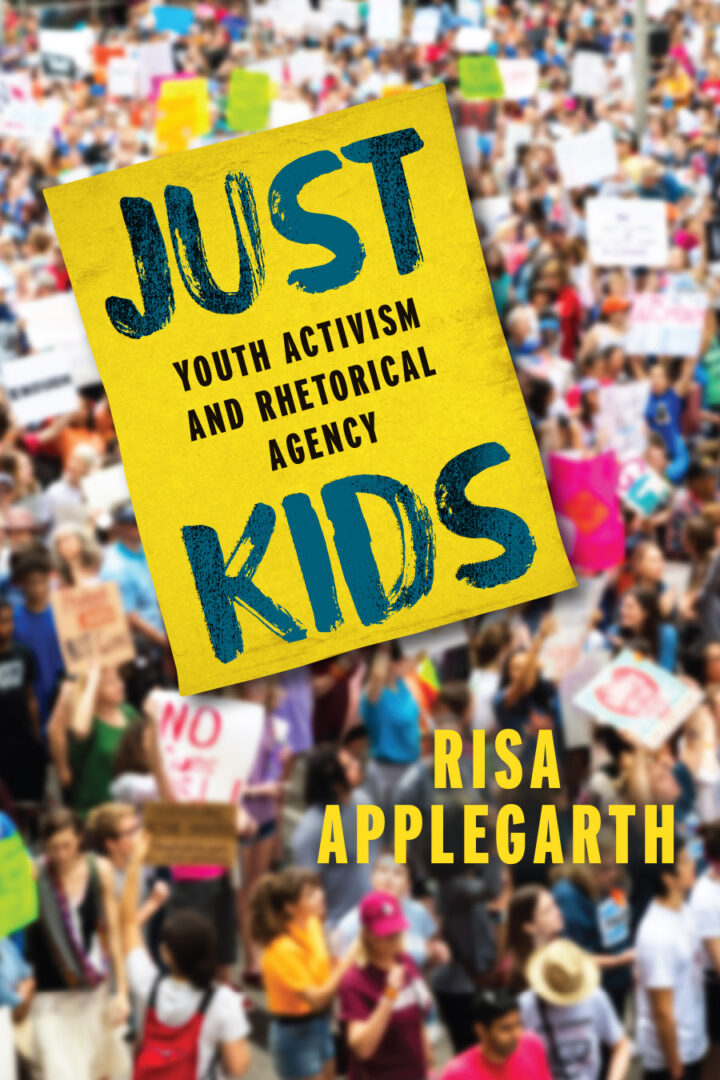Risa Applegarth’s Just Kids: Youth Activism and Rhetorical Agency is a three-part analysis of adolescent activism over the last thirty years. The analysis centers on their activist rhetorical agency so as to reframe youth efforts as not just emblematic of the movements they represent, but as symbols of embodied power in their own right. Each of the three parts is developed around a specific case study set in the United States. Reflexive interviews complement the research and enable participant consideration of subsidiary concepts such as temporality, memory, and materialism.
Keyword: rhetoric
Review of Constellating Home: Trans and Queer Asian American Rhetorics by V. Jo Hsu (The Ohio State University Press)
Constellating Home: Trans and Queer Asian American Rhetorics by V. Jo Hsu examines how queer and trans Asian American (QTAPI) individuals have reshaped the narratives around their belonging in the United States or elsewhere. Hsu recognizes the ways pervasive narratives like the model minority myth have imbued the meaning of Asian American belonging with capitalist, heteronormative, ableist, racist, and patriarchal notions. Exploring oral histories, visual representations, essays, and numerous other forms of rhetoric, Hsu engages in “diasporic listening,” a method that unpacks how QTAPI individuals have wrestled with these pervasive narratives and found ways of redefining their belonging. By focusing on the stories of trans, nonbinary, disabled, and other minoritized groups within the Asian American diaspora, Hsu shows how these diverse and individual stories contribute more robust meaning around being and belonging as an Asian American.
Review of Make America Meme Again: The Rhetoric of the Alt-Right by Heather Suzanne Woods & Leslie A. Hahner (Peter Lang)
In Make America Meme Again, Heather Suzanne Woods and Leslie Hahner highlight the central role that memes play in the contemporary political landscape. Specifically, the authors show the ways in which members of the Alt-right have deftly used memes to forward their political agenda, to recruit new members, and to move the so-called “Overton window” rightward to expand the acceptable field of political discourse. In their schema, memes are not simply distractions from important political issues; rather, they function rhetorically and work to constitute the political field. The authors trace the origins of the Alt-right to the murky depths of the internet and show how discourses that emerged from these shadowy depths were able to appeal to a wider audience and cohere around mainstream political discourse. The authors carefully outline the ways that memes circulate, the rhetorical strategies that the Alt-right uses to deploy them, and the ways they work to disavow any charges of racism or extremism that critics might level against them. For Woods and Hahner, memes are the dominant mechanism through which the Alt-right is able to secure and enact its discursive power. Aware of the bleakness of this particular historical moment, Make America Meme Again provides a cogent argument for the ways the Alt-right has been able harness memetic power while also offering a blueprint through which future scholars and activists might reconfigure the present conjuncture so that the Alt-right does not have a stranglehold over the discursive power of memes in the future.
Killer Drones, Legal Ethics, and the Inconvenient Referent
I offer a close reading of the legal and political discourses by means of which the United States government recently has sought to legitimate its use of weaponized drones to carry out targeted assassinations of suspected anti-U.S. combatants abroad. Situating my analysis in the context of philosophical approaches to the problem of truth and linguistic reference, I examine official government speeches, legal documents, and reports of civilian casualties. My semiological critique of these texts is carried out both within and against the “humanitarian” framework of just war theory, my dual approach being necessitated by the twofold strategy of the government’s justificatory rhetoric: on the one hand, the government’s public discourse distorts the accepted meaning of certain unambiguous and pragmatically functional legal signifiers (the jus ad bellum use of terms such as self-defense, imminence, and necessity, for example); on the other hand, it exploits the uncertainty that is endemic to some of those very same terms (necessity and proportionality in particular) when they are used to refer to the jus in bello quantification and valuation of incommensurable variables—of, typically, a particular number of civilian casualties relative to the amount of “military advantage” to be derived from the attack that “unintentionally” produces those casualties.



